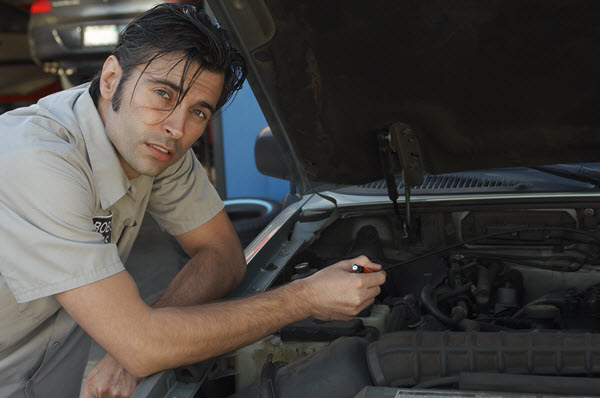Caution: 5 Steps to Take Before Buying a Used Car
By Charles Krome
December 14, 2016 • Fact checked by Dumb Little Man

Used vehicle sales were up another 3.2 percent during the third quarter of the year, and it’s easy to understand why. The average transaction price for a new vehicle is on the rise, with that figure now surpassing $34,600.
The choice seems pretty obvious if you’re shopping for a car and you’re on a budget: buy used. The thing is, if you’re not careful, buying a pre-owned vehicle can be more trouble than it’s worth—and more expensive than you thought.
Here are 5 steps you can take to help make sure you don’t get taken in when buying a used car.
Do your research

There are literally hundreds of different car and truck models on the market which makes narrowing the field an important first step. You’ll want to think long and hard about the kind of vehicle that best meets your needs—whether it’s a small hatchback or a large pickup—and then go online to see what the experts have to say about the leaders in that segment. And by “experts,” that includes real-world owners, too. A particularly helpful source is U.S. News & World Report. That site essentially crowd-sources its car reviews by basing them on consensus opinions from other auto-related resources.
See Also: What Science Says About The Car You Drive
Look into the vehicle’s history
Beyond doing your homework to pick a certain type of car, it’s just as vital to research the exact vehicle you’re thinking of buying. This is where a vehicle history report comes in handy. It can tell you information like accident history, the number of previous owners, open recalls and even give details about documented maintenance. Many used vehicles at major selling sites already supply these reports. But if they don’t, definitely ask for one.
Have a mechanic inspect it

Research and reports are invaluable, but they’re not infallible. There’s no replacement for having a knowledgeable, independent mechanic thoroughly inspect a possible purchase. (To be clear, that’s even the case if you’re considering a used car from a dealership, where a tech already has checked out the vehicle.) If you don’t have a mechanic you can trust, you can contact a company like Alliance Inspection Management, which will even send one of its pros out to your location. A comprehensive inspection starts at $129. That’s certainly better than having to pay for extensive repairs further on down the line.
If you don’t have a mechanic you can trust, you can contact a company like Alliance Inspection Management, which will even send one of its pros out to your location. A comprehensive inspection starts at $129. That’s certainly better than having to pay for extensive repairs further on down the line.
See Also: How to Find a Good Mechanic in the Age of Social Media
Inspect it—and drive it—yourself
Now that you’ve gotten your mechanic to sign off on the car, it’s time for the real judge—you. Feel it out and be sure that you’re going to like driving the car for a while. Are the seats comfortable enough? Is there enough headroom and legroom? Are controls within easy reach? What about the driving experience? If the ride’s too rough or the car feels too slow on a test drive, imagine years and years, and miles and miles, of the same issues.
Watch the bottom line
Although used vehicles can be a lot less expensive than new ones, they’re still a significant investment. The average transaction price for a pre-owned compact car was $11,929 at the end of September. It’s a lot of cash to come up with, and if you finance, note that the average loan payment on a used vehicle during September was $378 per month.
Moreover, there are ongoing costs to take into account, like gas, insurance, and routine maintenance, along with the likelihood of at least some repairs. A used vehicle should fit into your budget before you worry about fitting one into your garage.
For more tips, check out this CARFAX infographic about car value.
Charles Krome
Charles Krome is an automotive journalist and enthusiast. He writes consumer advice articles for CARFAX. to help car buyers get the best value on used cars.








